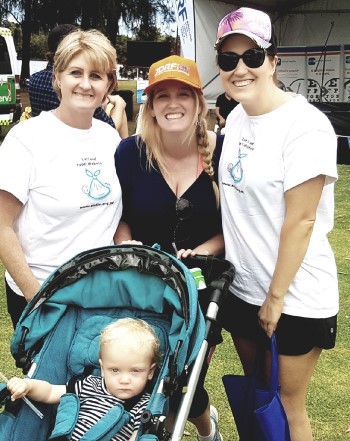Search

News & Events
Check out our new patient folderCheck out our new and improved patient folder - a comprehensive resource to help families navigate a new type 1 diabetes diagnosis, now and into the future.

News & Events
Be as fearless as EmilyMeet eight-year-old Emily. She lives in Northam, has Type 1 Diabetes and stars in one of the videos for a new The Kids Research Institute Australia digital advertising campaign. Mother Kathleen Noble said the initial diagnosis was the hardest time for the family.

News & Events
Centre's research in the spotlightThe Children’s Diabetes Centre showcased its progress in paediatric Type 1 Diabetes research at a JDRF Australia event held at The Kids Research Institute Australia recently.

News & Events
Kids connect at diabetes campKids living with Type 1 Diabetes got to hang out with super heroes and like-minded peers at the Diabetes WA and Princess Margaret Hospital (now known as Perth Children’s Hospital) kids’ camp in Bicton recently.

News & Events
Know what you are covered forRecent changes to private health insurance policies are a timely reminder to check your level of cover, especially for those undergoing pump therapy.

News & Events
We're running for diabetesChildren’s Diabetes Centre researchers will be pounding the pavement in this year’s HBF Run for a Reason on Sunday, May 27 and invite you to join us!

News & Events
Georgia wants to be part of the solutionGeorgia Egan, 16,recently completed a six-month Hybrid Closed-Loop Outpatient Trial, the longest and largest at-home trial of a hybrid closed-loop insulin pump.

News & Events
Get involved in ENDIAENDIA (Environmental Determinants of Islet Autoimmunity) is a national observational study into the causes of Type 1 Diabetes in childhood.

News & Events
Helping to relieve diabetes distressThe burden of having T1D is enormous and our researchers are conducting a study trying to understand how we can help relieve diabetes distress.

News & Events
ATAR special provisions still open for newly diagnosedThe deadline for ATAR exam special provisions is still open for newly diagnosed Type 1 Diabetes patients.
